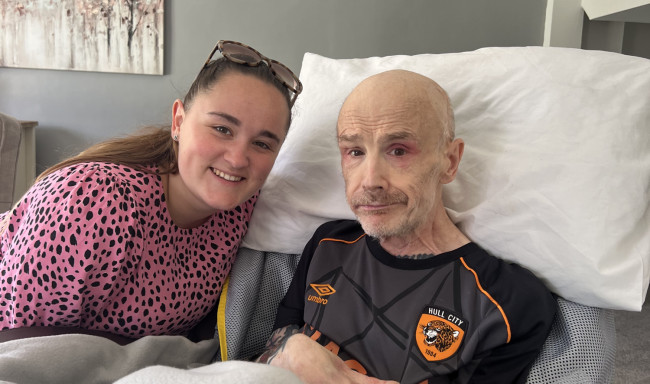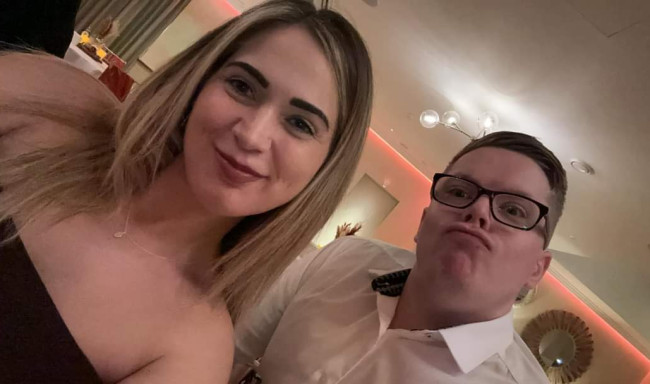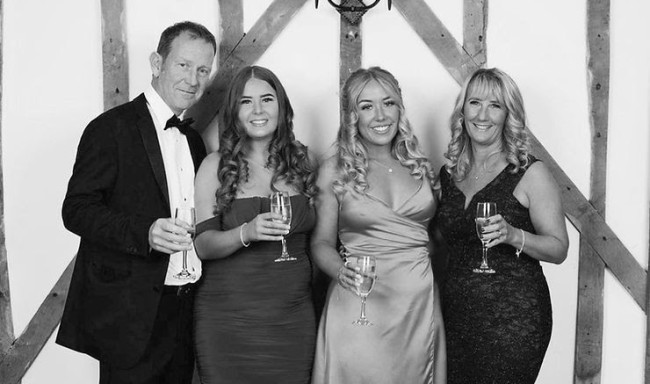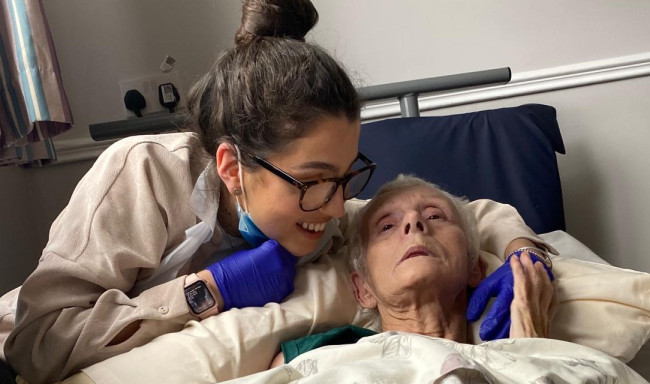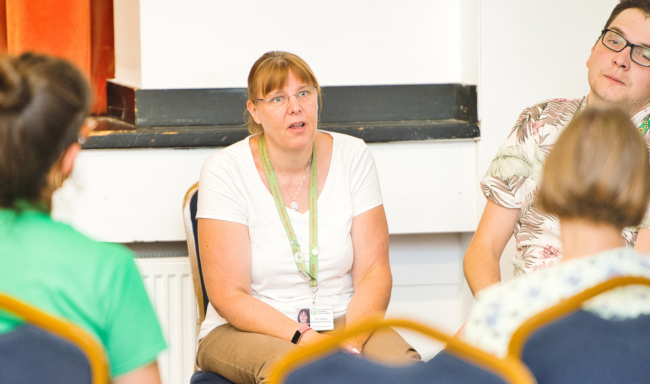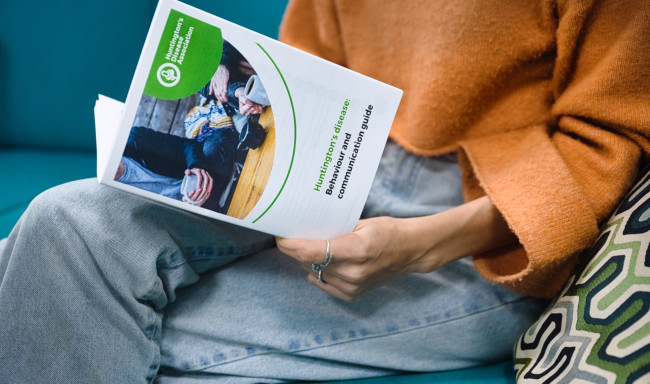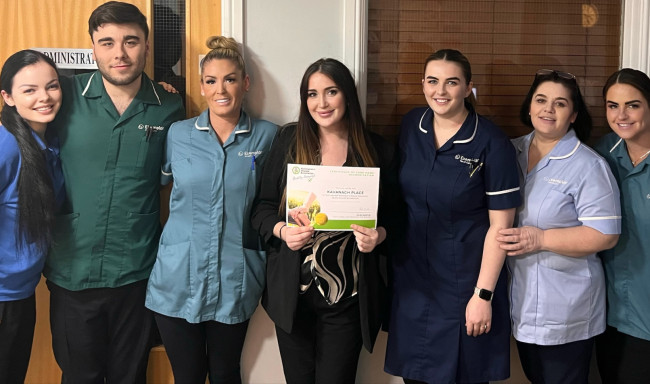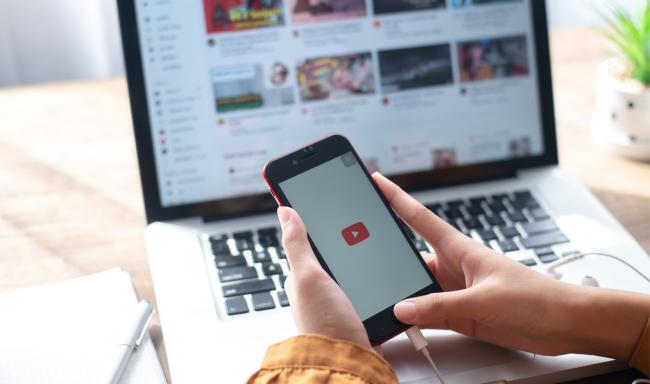As part of World Mental Health day, we spoke to Daniel about how and where he has found support for his mental health.
I had several calls with different people who genuinely didn’t know what to offer me, because of the words Huntington’s disease.
When did you first know that Huntington’s disease affected your family?
"Officially, when my Grandmother died when I was around eight years old, so the late 80’s. However, back then Huntington’s disease wasn’t really discussed or in fact understood. I remember my grandmother's health deteriorating through my childhood. We weren’t allowed to visit her when she ended up in a home. When I hit 16, I started to hear the words Huntington’s. But this was still very misunderstood. Firstly, My family believed it had more to do with two parents having the faulty gene. Also, the belief that if you didn’t show signs of Huntington’s disease by 50 years of age then you were fine. Then there was the fact no one spoke about it - it was described as our dirty little secret."
"When I was 40, my uncle took his own life due to the lack of support around Huntington’s disease, it was then that I started to look into the truth about the disease and its impact on my family. I have two sons who are obviously at risk of Huntington’s and I want to do whatever I can with the time I’ve got to help try and progress finding a cure for them."
How did Huntington’s affect your mental health before getting tested for the gene?
"I did suffer at times with outbursts that seem to have gotten worse since my mid-30s. When I was younger, I had some counselling, but this had more to do with my Mum leaving us at a young age. As time has progressed, I think I’ve struggled but managed to control or hide my feelings. Maybe push them under the carpet you may say."
"Then just before genetic testing aged 41. My mental health suffered pretty badly. I seemed to have a bit of a breakdown. I said to my wife one day. I don’t feel well. But not sick. Just mentally struggling. But I believed I was a bad person, and that I was just being punished for things I may have not done correctly in life. I was not suffering with anything Huntington’s related. In fact, I believed I was 100% negative and my uncle said to me that I showed no symptoms of Huntington’s so I must be negative."
After finding out you had Huntington's, how did this change?
"Well, unfortunately, I think for the first three months after my results. I bottled the feelings up again. I think this is what men seem to do a lot. My Dr and Genetic Counsellor started me on some medication to help my anxiety, feelings and temper. I was also given a Specialist Adviser at the Huntington’s Disease Association called Tracey who was really helpful in getting to grips with things at the start."
"One day I just lost my temper with everyone around me at work. I didn’t feel bad about this, and I still don’t. I felt that people needed to be told some truth about how things were being handled. From people below me to people at management level. I went home and then didn’t get back. Things were misunderstood about Huntington’s disease. People weren’t willing to listen to me. It was put down as being volatile but to me, I was being provoked."
Do you feel as though there is a lack of mental health services for those affected by Huntington's disease?
"Well, for the first six months after diagnosis I had nothing. The biggest issue was when you try to self-refer on the NHS website, if you mention anything about suicide it just says that service isn’t able to help. Then it starts over again. I had several calls with different people who genuinely didn’t know what to offer me, because of the words Huntington’s disease. My wife still says that she was about one phone call away from having me admitted. I ended up in a very dark place mentally. Luckily my Huntington’s disease team at St Georges and Specialist Adviser, Tracey managed to get me the correct support at the point of CRISIS."
"So for me, I don’t think the support is there. I think the Huntington’s Disease Association is a massive asset. But you need to know who and when to get in touch and I would say right at the start. I’d advise anyone to get the help and support you deserve."
Is there anything that has helped you with your mental health?
"I now have a team around me from Uckfield Hospital. They look after me on a fortnightly basis. However, although I’m nervous that at some point this will change. I have also increased the medication that I am on, this seems to be helpful at times."
If you have utilised any of our charity’s services, if so, has it been beneficial?
"I am in contact with the fundraising team and helped raise money for the charity with my wife and several friends undertaking different challenges. We have had help from James who is part of the Youth Engagement team at the Huntington’s Disease Association and they have provided support for me and my family. My own Adviser Tracey Hole has been a massive support and I have been on several Microsoft teams calls with help from some great friendly people. Most days I’m on the charity’s message board that I keep up to date with and try to support with questions asked. I am also a Huntington’s Disease Association ambassador and part of their WhatsApp group."
"We are very grateful for the support we receive from the Huntington’s Disease Association."
Thank you so much to Daniel for opening up and sharing his journey with us.
If you are affected by Huntington’s disease and are in need of support or advice, please contact us on 0151 331 5444 or email info@hda.org.uk. Our dedicated Helpline is open 9 am – 5 pm, Monday – Friday. If you are in need of urgent mental health support or support outside of our hours you can also access Samaritans on 116 123 or if you or your loved one is under 35 you can contact Papyrus on 0800 068 4141.

